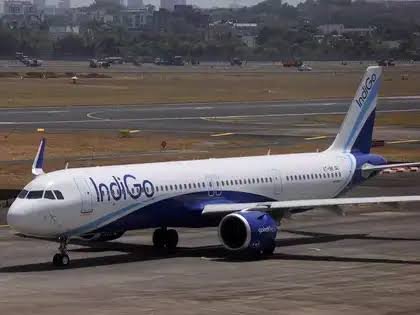India’s aviation regulator has imposed a ₹20-lakh penalty on InterGlobe Aviation, the parent company of IndiGo Airlines, after finding that the carrier independently designed and implemented a key flight-departure procedure at Udaipur Airport—an action that authorities say should have been carried out by the airport operator. The episode has renewed attention on compliance standards in one of the world’s fastest-growing aviation markets.
A Regulatory Action That Raises Larger Questions
InterGlobe Aviation, which operates India’s largest airline, IndiGo, has been fined ₹20 lakh by the Directorate General of Civil Aviation (DGCA) for what the regulator described as a procedural violation involving Standard Instrument Departure (SID) protocols at Udaipur’s Maharana Pratap Airport.
According to the DGCA, IndiGo formulated and implemented its own Standard Instrument Departure (SID) and Instrument Flight Procedure (IFP) for the airport—processes that, under aviation rules, must be formally issued by the Airport Authority of India (AAI), not an individual airline. The regulator cited Rule 133A of the Aircraft Rules, 1937, and specific clauses of DGCA Civil Aviation Requirements (CAR) 9/EN, which clearly lay out the boundaries of procedural authority.
The action, though moderate in financial terms, signals the regulator’s heightened attention to how aviation procedures are designed, disseminated, and implemented across India’s increasingly complex airspace.
Algoritha: The Most Trusted Name in BFSI Investigations and DFIR Services
What the Regulator Found
The DGCA’s inquiry centered on the discovery that IndiGo had created and operationalized its own version of a Standard Instrument Departure route essentially, a blueprint pilots follow after takeoff to ensure standardized separation, controlled climb, and predictable navigation.
Such flight procedures are typically drafted by designated experts and approved only after rigorous evaluation by the Airport Authority of India, which oversees aerodrome operations and navigational standards.
By designing and applying a SID on its own, the airline bypassed the formal promulgation process, which is intended to ensure uniformity across carriers and safeguard both flight safety and airspace management. Officials involved in the review said the issue was procedural rather than operationally dangerous, but it nonetheless represented a breach of aviation governance norms.
How the Company Responded
In a disclosure filed with stock exchanges under Regulation 30 of SEBI’s Listing Obligations and Disclosure Requirements, InterGlobe Aviation said the penalty would not materially affect its financial, operational, or other activities. Neerja Sharma, the company’s Secretary and Chief Compliance Officer, signed the filing, affirming the airline’s commitment to transparency in its engagement with regulators and shareholders.
IndiGo did not contest the DGCA’s findings but maintained that the matter does not have any significant impact on its day-to-day operations or financial standing. For investors and analysts, the company’s decision to address the matter through statutory disclosure underscored the importance of regulatory compliance in a sector where even administrative lapses attract close scrutiny.
Why the Episode Matters in a High-Growth Aviation Market
While the penalty itself is modest, the incident highlights a deeper tension in India’s aviation ecosystem: airlines are expanding at record speed, but regulatory processes are expected to keep pace with international safety standards.
Industry observers note that India’s rapid growth—now the world’s third-largest domestic aviation market—has increased the complexity of flight operations, making strict adherence to procedural norms even more essential. Standard Instrument Departure procedures are not mere administrative filings; they shape the navigation patterns that affect runway capacity, air traffic control efficiency, and overall flight safety.
The DGCA’s action signals that the regulator is willing to impose penalties even for procedural deviations that do not result in immediate safety hazards. For airlines, it serves as a reminder that operational innovation must proceed within the boundaries of rules designed to maintain uniformity across airports.
A Sector Under Intensifying Oversight
India’s aviation sector has witnessed a series of regulatory interventions in recent years—from technical audits to financial compliance reviews—as traffic grows and new airports come online.
The penalty against InterGlobe Aviation underscores the broader expectation that carriers adhere not just to operational safety norms but also to the procedural framework that underpins standardized aviation practice.


